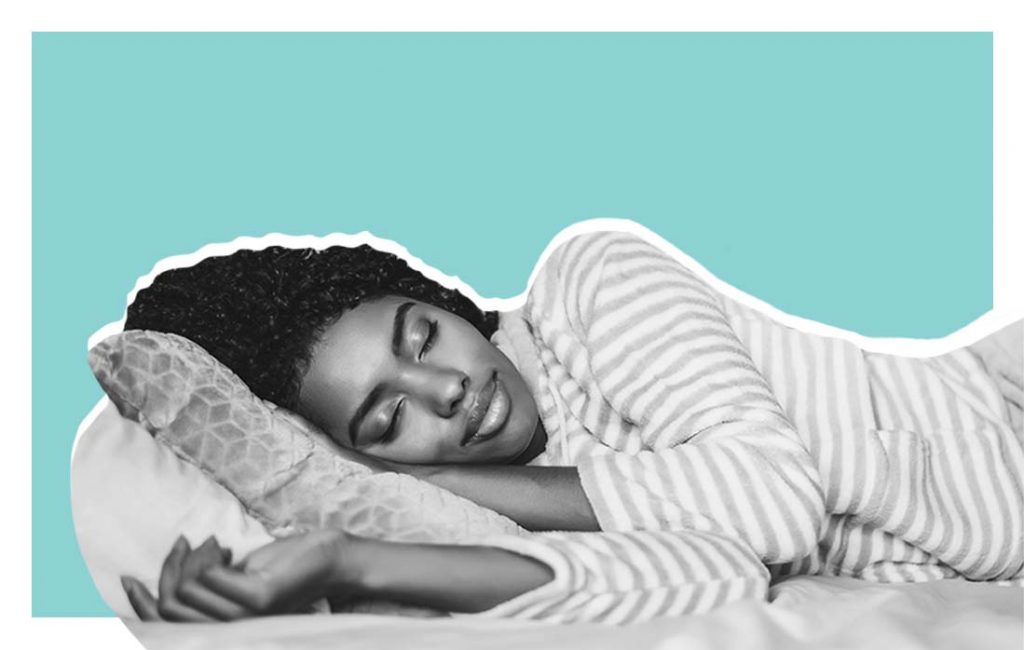Perhaps it is not a matter of should your sleep habits change, but a matter of how will your sleep habits change with each season? Whether you intend it to or not, the shorter days and longer nights will affect your sleep, just like the longer days and shorter nights impact the amount you need. In either scenario, it may be best to just prepare for that shift in advance.

In The Fall
Cold and flu season can wreak havoc on our sleep patterns. And while this can linger through the winter, there are precautionary measures we can start in the fall to help combat illness and build up our immune reserves. Healthy body = healthy sleep. With that in mind, here are a few suggestions:
- Go to bed earlier: Take advantage of the shorter days and head to bed a half hour earlier. Sleep can be your best defense against cold and flu.
- Use a humidifier: The increase of allergies and decrease of moisture in the air in the fall can also impact sleep. Bringing a humidifier into your room at night can add moisture to the air and help alleviate coughing and dryness-induced snoring.
In The Winter
Our circadian rhythms all adapt to the increase and decrease in the amount of light we are exposed to daily. In the winter, many wake when it is dark and come home when it is dark, this lack of natural light can deplete our Vitamin D resources. Vitamin D is essential for bone and muscle health, but is also closely linked to serotonin production.
The decrease in serotonin levels can affect not just our physical bodies by leading to daytime drowsiness and fatigue, but also our emotional wellbeing. In the winter, you may need more sleep, or feel that you need may sleep, but you also need to give your biochemistry a boost. This is especially true in areas like the Pacific Northwest, known for some of the longest daylight hours in the summer and some of the shortest daylight hours in the winter.
Here two winter habits that will increase your energy levels and the quality of your sleep:
- Natural light exposure: According to Purdue University research, “people with fair skin need nine minutes, medium skin 16 minutes, and dark skin 38 minutes to absorb 2000 IU of vitamin D with 25 percent of skin exposed.” Ideally you can get outside during winter months to take advantage of the natural sunlight. But, if not feasible, there are many sunlamps on the market to choose from that allow you to get in your vitamin d in the comfort of your own home.
- Increase your Vitamin D intake: If you are unable to get the recommended natural light daily, then there are other options. You can also increase your Vitamin D intake by eating Vitamin D dense foods (salmon, mackerel, tuna) or by taking over the counter supplements. Check with your physician for the recommended amount.
In The Spring
Seasonal allergies can run amuck in the spring. And though our natural instinct is to fling our windows open and welcome in the warm air, it can be disastrous for sensitive allergy sufferers. Additionally those April showers can disrupt our sleep, causing us to toss and turn during harsh thunder and lightning.
To secure a better night sleep, try these two methods:
- Purify your air: There are a variety of air purifiers on the market. You can find options of every shape and size for most any space, I prefer a smaller model that I can store easily in my room. We use it at night to ward off dust for my allergy-sensitive husband and it has worked wonders.
- Sound machines: A sound machine is a great way to easily drown out distracting noises. Perfect for covering the sounds of heavy storm season or your neighbor who likes to take on late-night projects. There are countless sound machines and white noise apps on the market, so you are guaranteed to find one that quells your restlessness and lulls you to sleep.
In The Summer
Optimizing summer slumber is all about making your bedroom as cool as possible. Dropping the temperatures in your room, either naturally or with forced air, helps to ensure healthier, longer, sounder sleep.
Two tricks for keeping your sleep space cool and dark in the summer:
- Reversible air-flow fans: You need not run out and immediately purchase an air conditioner when the temperatures rise – first try a reversible air-flow fan. Best when inserted directly into a window, these fans pull the warm air out of your space and recirculate with cooler air from outdoors.
- Blackout shades: Keeping the sun’s early rays at bay can’t hurt your slumber, especially when they also double at keeping the space cool. Blackout shades can be purchased or cut-to-order at most hardware stores. They are also perfect to help create a dark environment for sleeping babies!
Your circadian rhythm’s natural shifts during different times of the year can be problematic for your sleep habits. I hope the tools provided allow you to prepare your body and your space for seasonal changes, and ensure a good night’s rest year round.


























